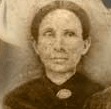










| |
|
|
|
|
|
|
|
|
|
|
|
 |
|
 |
 |
 |
 |
 |
 |
 |
|||
 |
 |
 |
|
||||||||
The Wilds Of Indian Territory
Life in Paucanla was never easy. Mattie had to spin and weave all the cloth to make clothes for the family. The leather for their shoes had to be tanned, cut and fashioned into shoes for each member of the family since there were no shoe stores there in those days. If a shoe was too small, it could be stretched by an ingenious method. The shoe was filled with dry corn, laced up tight, and then water was poured into the shoe and set aside over night. By morning the leather would be stretched to the correct size, but sometimes, the process caused the leather to split if the corn stayed in the shoe too long. Like Abraham Lincoln's early efforts to read in the evenings, reading had to be done by firelight in the Paucanla home. And even lighting the fire was not a simple task. Matches were a rarity, so "lamp lighters" were made from long strips of paper, rolled tightly into a taper. Knowing how to do this was quite an art. Their furniture was homemade. Bedsteads, chairs and tables were made of walnut, hickory or pecan wood. Billy not only made furniture, but knew how to make wagon wheels and was ready to make a new one if a wheel broke. This process took a day or day and a half, but it was necessary since there were no available stores for such purchases. It was a common task in the rough countryside since many tree stumps were left in fields or even roads, and breaking a wheel was common. Despite these hardships, there was an abundance of fruit and berries for the picking. The Chickasaws had longstanding orchards of apple, peach, cherry and apricot trees, some, twenty-five years old, and they freely shared them with their neighbors. Mattie was able to can over 100 half gallons of fruit one summer. Since glass jars were not available, she made preserves or jams or dried fruit and put them in cans. The Chickasaws were quite friendly and most generous with their gifts of meat to their white neighbors. The Meads became good friends with them and even went on hunting trips with them. They were excellent horsemen and could train their horses to do most anything. Once, Worth went with Bird and Bob and a group of Chickasaws into the wilds of the Kiamichi Mountains, some distance east of Paucanla. They hunted bear and panthers which were common all through the countryside. Worth was always hunting panthers and cougars for their hides. One morning he spotted a lair of wildcats across a small creek and he was trying to figure out how to get to them by surprise. He saw a male and a female there. As he was slipping through the brush, the male cat came out of the brush behind him and sprang at him. He lifted his arm to protect his face and began stabbing at the cat with his knife. A royal fight ensued while the female cat, across the creek sat on her haunches to watch. When Worth was finally able to kill the male, the female let out a terrible wail and bounded off into the woods. Worth was badly wounded and might have died if it hadn't been for the Indian boys that found him and nursed him back to health again. After that, Worth had nothing but praise for the Chickasaws that he knew. He admired their skills at hunting, their generosity, and love for their horses. He had seen them take a horse into the dark woods at night, whisper something into the horse's ears and the horse would stay in that place until his owner gave him another command. One time, Worth acquired a horse that had been trained by Sitting Bull, a bald faced bay with a stout build, weighing around 1100 pounds. Worth fell in love with that horse because he was so smart and well trained. Worth could lay his gun between the horse's ears and fire and the horse would not flinch or jump. He could be ridden without a rein anywhere. Once Worth rode him into a herd of some five hundred cows, rode up to a cow that Worth wanted, designated the cow to the horse, and watched the horse put the cow into the corral without further orders or a rein! There were few roads in the area for some time. The wild cougars and bear made it somewhat unsafe to travel alone and the hilly terrain made it difficult to get around except by horseback. As the little town of Paucanla developed, a few roads were built for wagons to get access into town in order to transport supplies. A farmers market eventually developed for trade. [Author's Note] Worth Mead's 1937 account describes the wilds of Indian Territory and his hunt for wildcats.
Being Indian
|